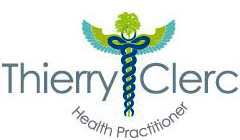We will focus on supplementations, and on how to find out what is good for each of us. Each human being has a unique set of genes, which will be activated in different ways depending on our circumstances in life. Nutrition, either through food or supplementations, is an important access to health.
I hope you find this newsletter useful and thought-provoking.
Safety of our supplements
In the developed West, nowadays, about 50 to 70% of the populations take supplements. But are supplements dangerous?
Most governments are now trying to regulate and control the access to supplements. This has resulted in the UK alone to the disappearance of thousands of supplements that were freely available 5 years ago. While these supplements are still available under prescription from a trained herbalist or nutritionist, like Thierry Clerc, they are not available in shops anymore.
In 3 years time, a major change will further limit the therapeutic power of supplements (the amount of active ingredients).
So, is it safe? A UK and European wide study (see Alliance for Natural Health website) have) recently revealed data showing that compared to supplements, an individual is:
- Around 900 times more likely to die from food poisoning than supplements.
- Nearly 300,000 times more likely to die from a preventable medical injury during a UK hospital stay.
- 62,000 times more likely to die from taking a conventional medical drug than a food supplement.
- You are 7,750 times more likely to die from taking a conventional medical drug than a herbal remedy.
The dat, was collected from official sources in the UK and EU. It demonstrates that both food supplements and herbal remedies are in the ‘super-safe’ category of individual risk (the meaning risk of death is less than 1 in 10 million).
If you wish to protect your access to supplements, check www.saveoursupplements.org.uk.
How to know what supplements are good for you?
First, it is important to understand that there are common sense rules in terms of taking supplements. Here are some simple advice:
– Do not use them to “treat a condition” without expert advice, as this may merely hide more severe symptoms. This is especially important if you are on conventional medications.
– If you take supplements, take them on and off – for example, a break every 3 months. The body gets used to supplements, so have some time off will help you get the most of it.
– Supplements should not be used as an alternative to good diet. Also, when taking supplements, extra-effort should be made to consume the food that contains that specific supplements.
Safety of conventional Drugs
Finally, it is worth noting that taking a conventional drugs for more than a year can have significant side-effects on your health. Drugs are known to cause well over 125,000 deaths per year in the US when taken correctly as prescribed. According to the US National Poison Data System the following drug categories are among the most lethal: analgesics, sedatives, hypnotics, and antipsychotics; cardiovascular drugs; opioids; acetaminophen; antidepressants. Slightly lower down on the list you find drugs like muscle relaxants, anti-inflammatory drugs, hormones, antacids, anticoagulants, and antihistamines.

